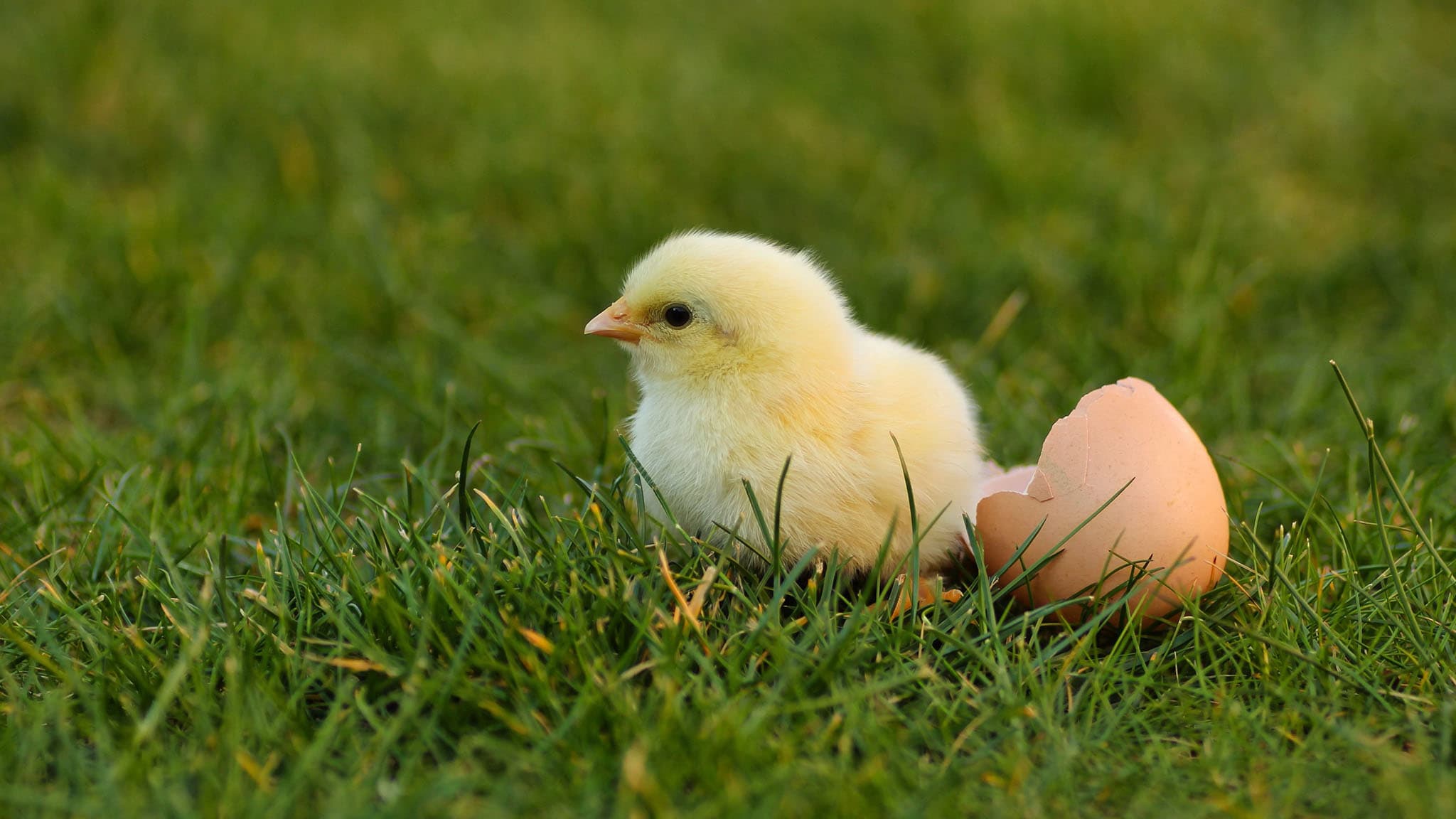Loneliness And Depression — The Chicken Or The Egg?

With depression, one of the most important things you could realize is that you’re not alone…you’re not the first to go through it; you’re not going to be the last to go through it. — Dwayne Johnson
Loneliness and depression are highly correlated and often intertwined, leading to many myths and misconceptions when it comes to depression.
- Research shows that depression and loneliness frequently co-occur, and it can be a classic “chicken versus egg scenario” with no clear answer to which one came first
- While depression and loneliness are two distinct conditions, they commonly occurred in tandem during the COVID-19 pandemic.
- It’s important to be kind to yourself and reach out for help when loneliness and/or depression become too difficult to manage on your own — there is no shame in seeking professional help or taking medication.
Struggling with loneliness or having a mental health crisis?
- Suicide Prevention Lifeline: 1-800-273-TALK (8255); Deaf or hard of hearing dial 711 before the number or connect via online chat
Although public awareness of mental illness is spreading, there are still folks out there who believe that it isn’t real, that it’s something you can just “snap out of,” or that it’s a character flaw rather than a legitimate medical condition.
But perhaps some of the most dangerous myths about depression are the ones we tell ourselves:
“Nobody else would understand or care…”
“Nobody can help me, anyway…”
“I will always feel this way…”
“Loneliness and sadness will follow me for life…”
As someone who has dealt with depression for the better part of twenty years, I’ve told myself many such myths in the past.
In fact, it wasn’t until I started treatment and medication that I was able to gain a rational perspective and stop the lies that had been knocking around in my brain.
Essentially, I didn’t realize how bad it had gotten until I started treatment.
After starting medication, I was taken aback by how quickly and drastically my internal dialogue changed.
Primarily, I noticed that my loneliness began to dissipate within a month.
Even though the nature and number of my relationships hadn’t changed at all, I started feeling so much more connected to the world at large.
This realization is what made me begin to consider the relationship between loneliness and depression.
What I found, and what I’ll share with you in this article, is that one often precedes the other and they love to go hand in hand.
But, they are actually two very different constructs and much like the chicken versus the egg, it can be difficult for a person to determine which came first.
The Difference Between Depression And Loneliness

You may have noticed that the terms “depression” and “loneliness” are often used synonymously.
Research shows that they frequently co-occur, and as stated above, it can be a classic “chicken versus egg scenario.”
For example, one study demonstrated how loneliness can be a predictor of future depression.
This is because loneliness causes an increase of negative interpretations of social company, which is associated with a higher frequency of being alone afterward.
Depression caused by loneliness can lead to a self-perpetuating loop which increases the risk that a person will develop major depressive disorder, or MDD, down the line.
On the flip side, depression can easily lead to loneliness as well. In fact, I’ve never met another person with depression who wasn’t also lonely.
This is because depression distorts the way we view the world and colors all of our interactions, day in and day out. This often causes us to self-isolate and avoid social functions altogether, leading to loneliness.
But let’s take a look at some very key differences between loneliness vs. depression.
Loneliness is commonly defined as being alone or having no friends because it occurs when a person desires more social connection and interaction than they’re getting. Still, a person can be lonely without actually being alone if they don’t feel like they’re connecting with others, or conversely, one can be physically isolated from others yet not feel lonely because they don’t desire social interaction.
What Is Depression?
Depression is a mood disorder that causes a persistent and pervasive feeling of sadness. Unlike loneliness, which reflects a desire for social connection that isn’t being met, depression can be caused by chemical imbalances in one’s brain chemistry, hormones, inherited traits, life circumstances, or other situations that affect a person’s mood and outlook on life.
Loneliness is a motivational drive, caused by our natural human need to connect with others and form intimate relationships. This is a driving force, similar to hunger or sleepiness.
Loneliness can be a temporary phase, known as “transient loneliness.” For example, this might occur when a person is traveling away from home or they’ve just moved and have yet to meet new friends.
Loneliness can be more chronic, as well.
When a person has a persistent inability to create and maintain connections with others, this deficit can sometimes be associated with inherent personality traits that prevent them from having adequate social interaction.
Depression, on the other hand, is a general and severe feeling of hopelessness. It’s a clinical condition that can cause a misperception or distortion of reality, particularly as it worsens over time.
It affects the daily functioning of a person’s life, can lead to suicidal thoughts or attempts, and wears a person down both mentally and physically.
One thing a lot of people probably don’t realize is that there are many different types of depression. These can include:
- Major Depressive Disorder (MDD)
- Persistent Depressive Disorder (PDD)
- Bipolar Disorder
- Depressive Psychosis
- Postpartum Depression
- Premenstrual Dysphoric Disorder (PMDD)
- Seasonal Depression
- Situational Depression
- Atypical Depression
But make no mistake: There aren’t any types of depression that a person can just “snap out of.”
Depression can also co-occur with social anxiety disorder, with the latter often preceding the former.
This was the case for me, which increased my loneliness as I fell into a vicious cycle of taking “the easy way out” by just avoiding other people rather than facing the discomfort of social anxiety.
This meant that I ended up pushing some of my best friends away in high school and had to take a hiatus from my first year of college when the anxiety became too overwhelming for me to sit in class.
Many other folks who have depression simply learn to wear a mask and conceal their condition from others. Men, in particular, may struggle to share their feelings of loneliness or depression, hiding it from everyone.
This is known as “smiling depression,” and it leads to a litany of other problems, such as alcohol abuse and various self-destructive behaviors. It may even increase a person’s suicide risk.
A good example of this would be Anthony Bourdain’s 2018 suicide.
He had always been very open about his past issues with heroin, but by all accounts, he was a gregarious, outgoing man living his “dream life” as a beloved chef, author, TV personality, and global traveler extraordinaire.
The world was shocked to hear about his suicide. How could he do it? He was at the top of his game and seemed to have it all!
This is how smiling depression manifests.
So can loneliness cause depression? Absolutely. The opposite is true, as well — but there are some ways to prevent one from leading to the other.
How To Prevent Loneliness From Leading To Depression (And Vice Versa)
The best course of action for dealing with depression, loneliness, or both is to face the situation head-on and break the vicious cycle.
I realize this is so much easier said than done, but I can offer a few pieces of helpful advice from my own experience.
I don’t have all the answers regarding how to deal with, or beat depression and loneliness, but I will share some of the things that helped me to overcome it.
- Know the difference between loneliness and depression, and recognize the importance of a diagnosis.
For a long time, I was in denial about my depression and I wasted a lot of time telling myself that it was just loneliness…or a personality defect…or just “the way I am.”
But I started treatment at the behest of my partner and I soon came to realize that yeah, I had been really sick.
It wasn’t just a character flaw.
I had been depressed for so long that I didn’t realize there was a better way to live and that I didn’t have to be constantly up inside my own head.
So if you’re consistently lonely, it might be worth it to ask yourself: Is this loneliness or might there be a deeper, underlying issue going on?
Sometimes loneliness isn’t something we can fix ourselves because it runs much deeper.
- Seek therapy and medication if needed because it can help more than you realize.
As I explored in my piece on social anxiety loneliness, cognitive behavioral therapy may be necessary if in fact, you’re suffering from depression.
Even if it’s just a classic case of loneliness without a hint of mental illness, I’m a big proponent of therapy for everyone!
In addition to this, your doctor may prescribe an SSRI or Selective Serotonin Reuptake Inhibitor. This class of medication includes common drugs such as Prozac, Celexa, Lexapro, and Zoloft.
I’ve heard mixed reviews from others, but for me, taking an SSRI was a total game-changer.
It’s also worth noting that, as with depression itself, there are a lot of myths cycling around about antidepressants, including SSRIs.
(No, they won’t turn you into a zombie!)
My advice? Get off the internet and go talk to your doctor.
- Put the mind-body connection to work.
This might seem like fairly obvious advice, but we can all use a reminder sometimes that the mind-body connection is a strong one!
Whether you’re suffering from loneliness or depression, it’s important to make sure you’re getting the right amount of sleep, eating well, and exercising.
And the benefits of exercise are many when it comes to combating loneliness.
First, by engaging in a group exercise setting, you’re gaining a sense of community with positive, proactive people.
You’ll also increase your confidence levels as you begin to feel better in your own body. Plus, you’re releasing all those happy little endorphins when you exercise!
- Consider the therapeutic benefits of a pet.
We aren’t all in a position where we can adopt a pet, but if this makes sense for your lifestyle, it might be something worth considering.
Research shows that pets have profoundly positive effects on mental health.
They can help break the cycle of loneliness and depression by providing consistent companionship, keeping you on a regular schedule, and providing a sense of calm when things are darkest.
- Recognize that chronic loneliness can lead to other medical problems (besides depression), and take action now.
Chronic loneliness takes a heavy toll on a person mentally and physically.
Your mental health is just as important as your physical health. Be kind to yourself and treat it with the same sense of urgency.
Closing Thoughts
If you’re suffering from loneliness, depression, or both, it’s understandable that you don’t want to wave that fact around like a flag.
I’ve been there, myself. But at the same time, there’s no reason to hide it or be ashamed.
There are many, many of us out there.
By reaching out to each other and finding the help we need, we are taking the most important step in alleviating both depression and loneliness.
Editor’s Note: This article is part of The Roots Of Loneliness Project, the first-of-its-kind resource that comprehensively explores the phenomenon of loneliness and over 100 types we might experience during our lives.
Find Help Now
If you’re struggling with loneliness and/or depression, we’ve put together resources to meet you wherever you are — whether you want someone to talk to right now, or are looking for longer-term ways to help ease your loneliness.
- Suicide Prevention Lifeline: 1-800-273-TALK (8255); Deaf or hard of hearing dial 711 before the number or connect via online chat
- Resources & Emotional Support For Loneliness
- Volunteer & Pet Adoption Opportunities






